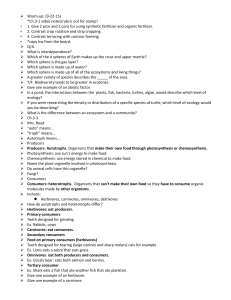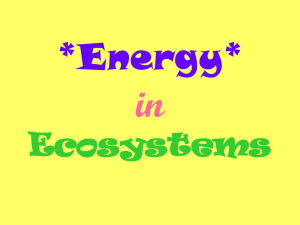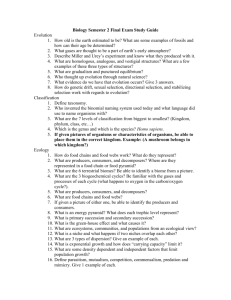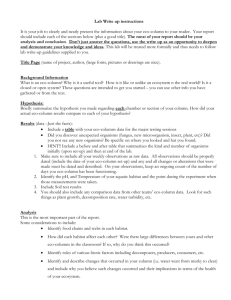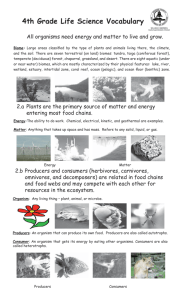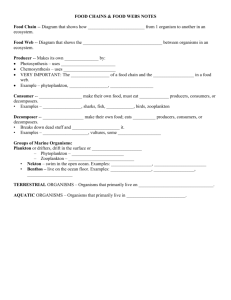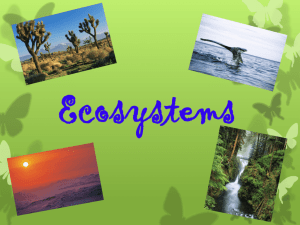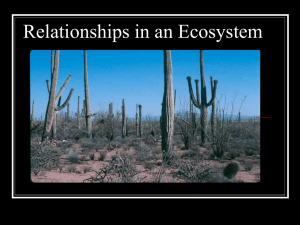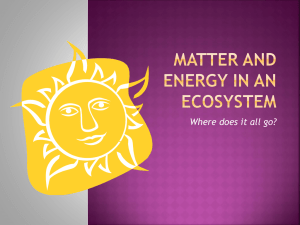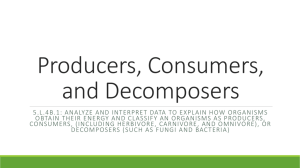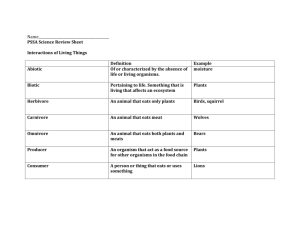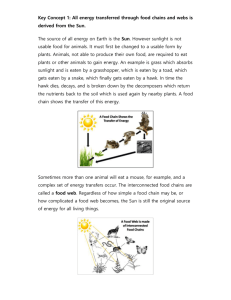Living Things Need Energy Producers – organisms that use sunlight
advertisement
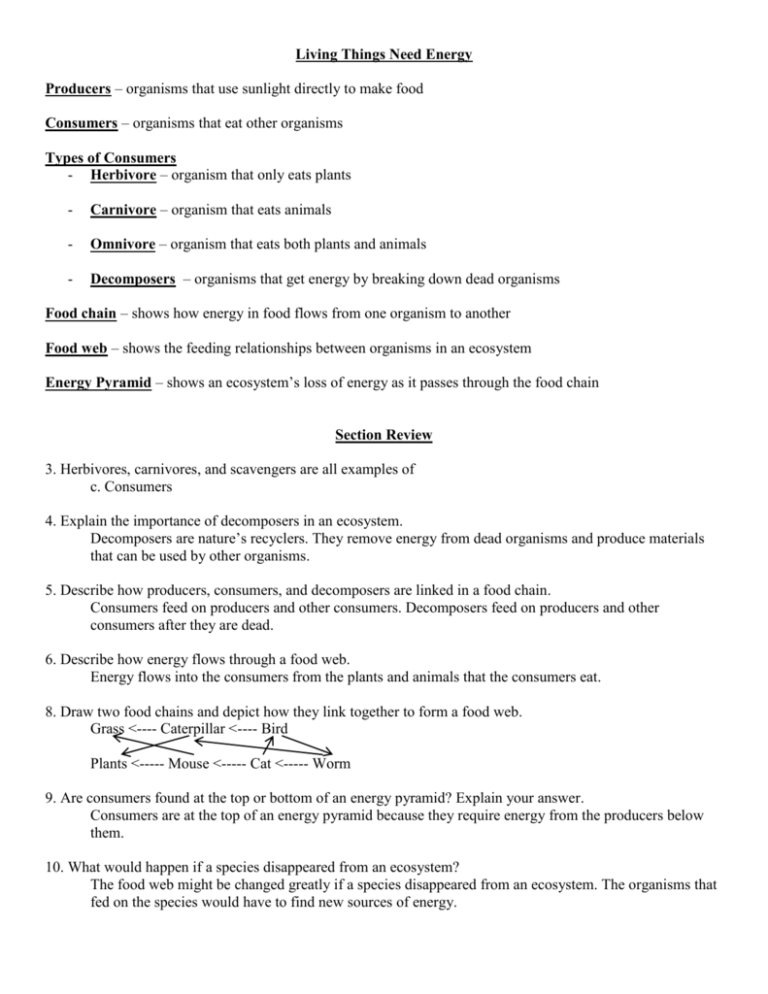
Living Things Need Energy Producers – organisms that use sunlight directly to make food Consumers – organisms that eat other organisms Types of Consumers - Herbivore – organism that only eats plants - Carnivore – organism that eats animals - Omnivore – organism that eats both plants and animals - Decomposers – organisms that get energy by breaking down dead organisms Food chain – shows how energy in food flows from one organism to another Food web – shows the feeding relationships between organisms in an ecosystem Energy Pyramid – shows an ecosystem’s loss of energy as it passes through the food chain Section Review 3. Herbivores, carnivores, and scavengers are all examples of c. Consumers 4. Explain the importance of decomposers in an ecosystem. Decomposers are nature’s recyclers. They remove energy from dead organisms and produce materials that can be used by other organisms. 5. Describe how producers, consumers, and decomposers are linked in a food chain. Consumers feed on producers and other consumers. Decomposers feed on producers and other consumers after they are dead. 6. Describe how energy flows through a food web. Energy flows into the consumers from the plants and animals that the consumers eat. 8. Draw two food chains and depict how they link together to form a food web. Grass <---- Caterpillar <---- Bird Plants <----- Mouse <----- Cat <----- Worm 9. Are consumers found at the top or bottom of an energy pyramid? Explain your answer. Consumers are at the top of an energy pyramid because they require energy from the producers below them. 10. What would happen if a species disappeared from an ecosystem? The food web might be changed greatly if a species disappeared from an ecosystem. The organisms that fed on the species would have to find new sources of energy.
